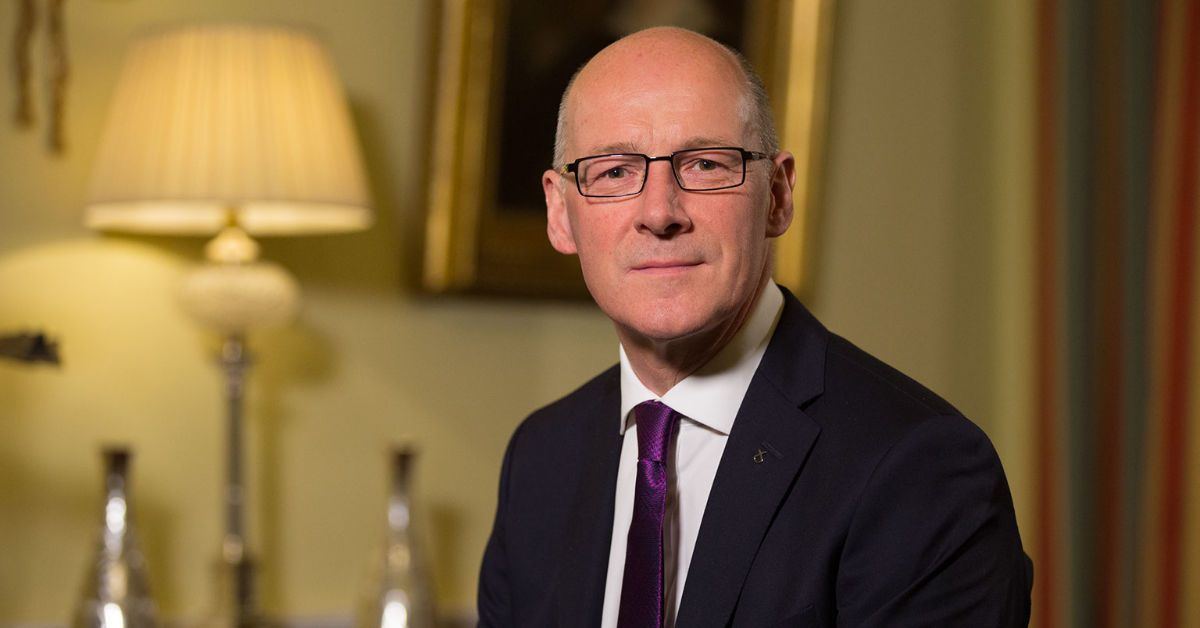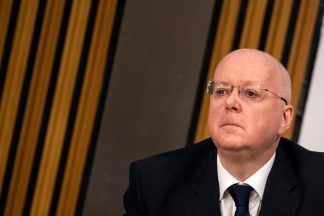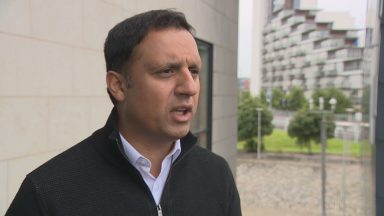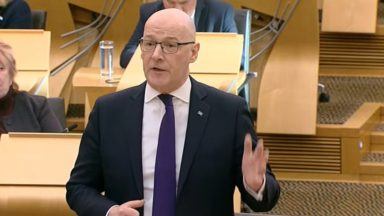Nicola Sturgeon’s deputy John Swinney will step down along with her at the end of the month.
The veteran politician has served as deputy first minister of Scotland since 2014.
He said it had been the privilege of his life.
The First Minister said she felt “a real sense of sadness” about Swinney’s decision and said his contribution had been “considerable” and “unique”.
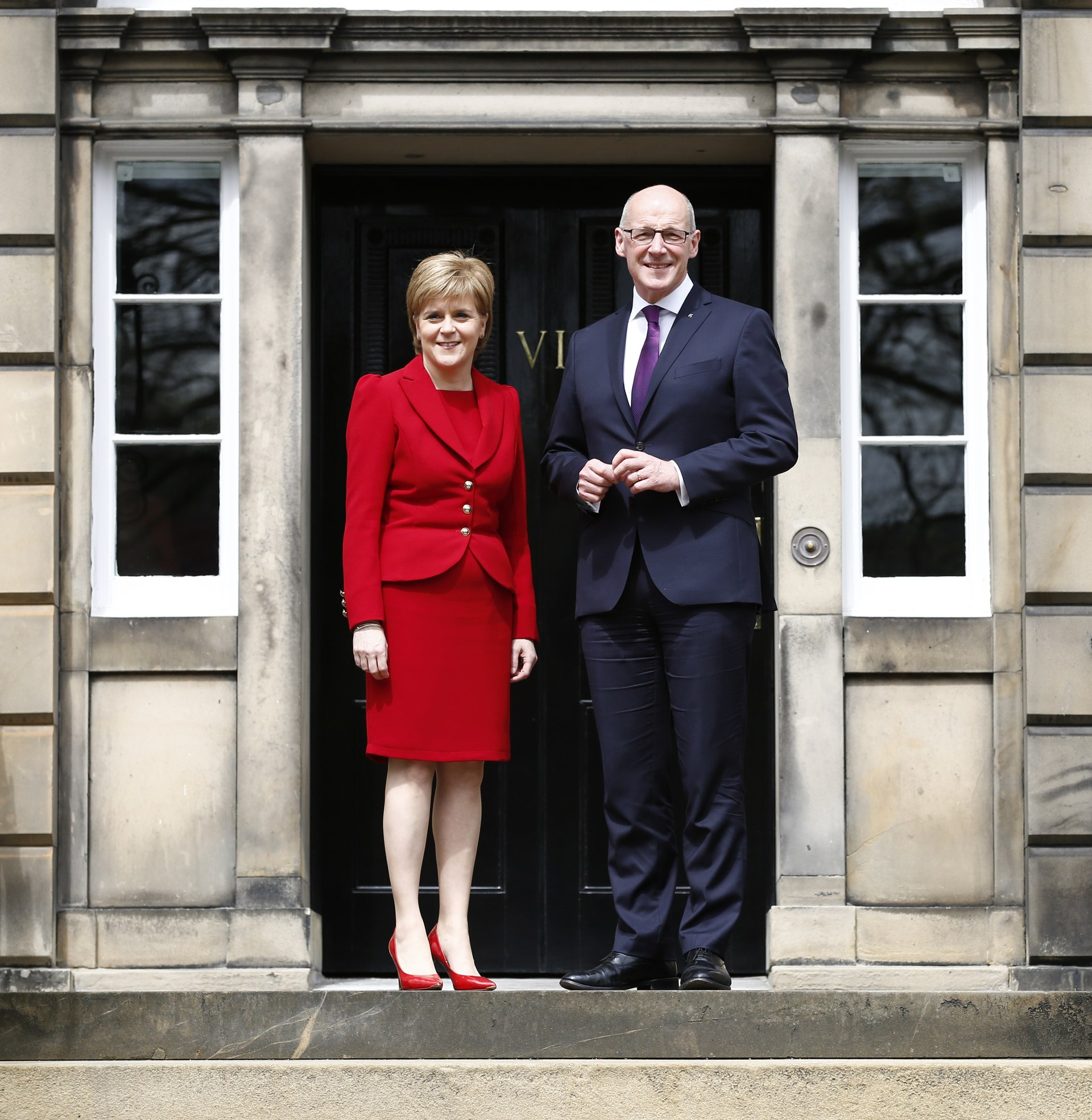 Scottish Government
Scottish GovernmentIn particular, she praised Swinney’s work as minister for Covid recovery.
“From the darkest days of the first lockdown, you led our work on the ‘four-harms’ approach that guided exit from public health restrictions,” Sturgeon wrote.
“From a more personal perspective, your friendship and wise counsel during the pandemic, which was by far the most challenging period of my tenure as First Minister, was invaluable and helped me through some really tough days.”
Writing to the First Minister, Swinney said: “These have been demanding commitments to fulfil over nearly 16 years and I have decided that, when the First Minister is appointed later in March, I will stand down from Government.
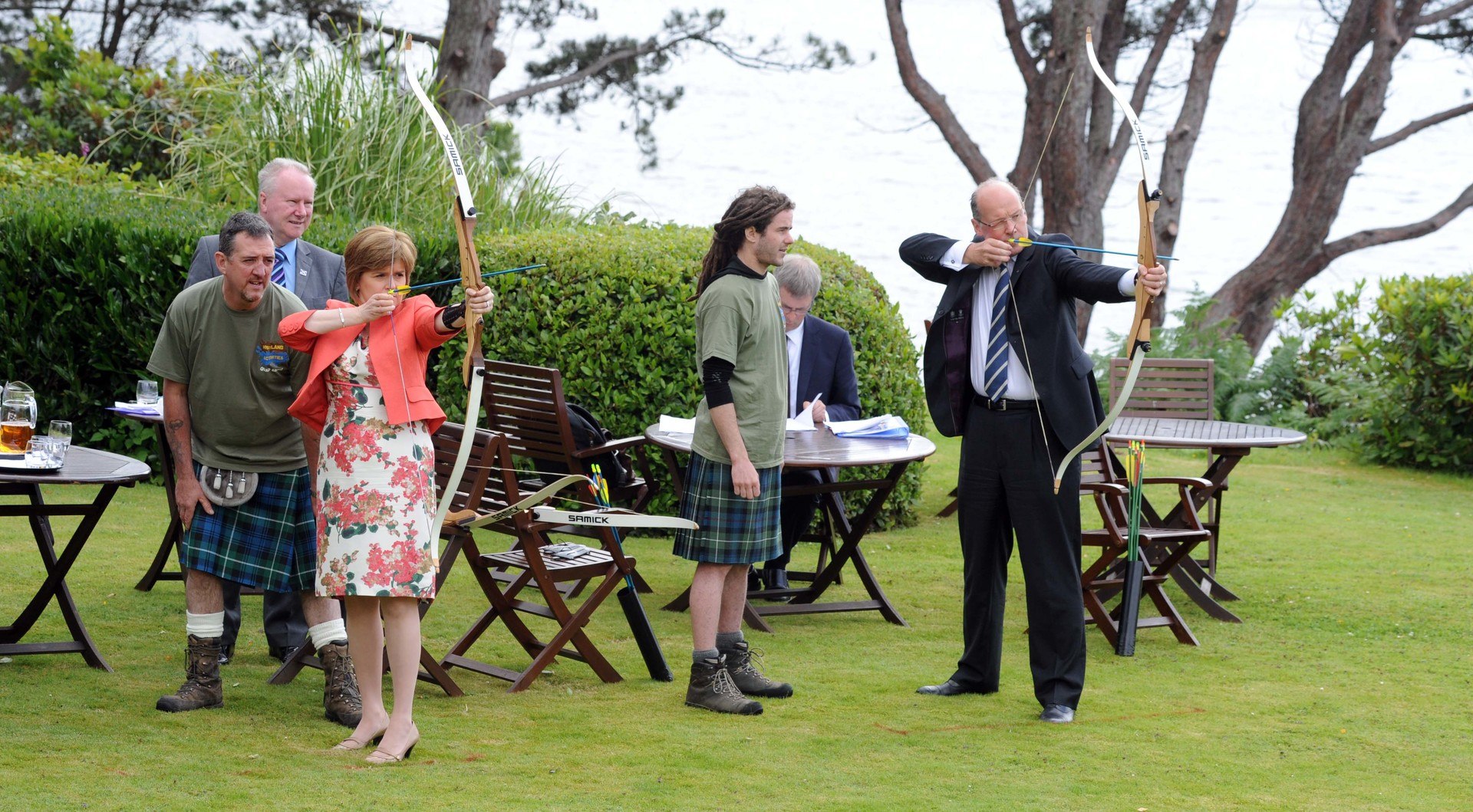 Scottish Government
Scottish Government“When I joined the Scottish National Party at the age of 15 in 1979, our political prospects were poor and I could scarcely have imagined that over so many years I would have the opportunity to serve Scotland in government in the way I have.”
The 58-year-old said he had always aimed to “transform the life chances” of everyone in Scotland and tried to make the country a “fairer, more prosperous and more confident country” that he believed would be assured with independence.
Swinney praised the “outstanding” civil servants he had worked with as well as his parliamentary colleagues.
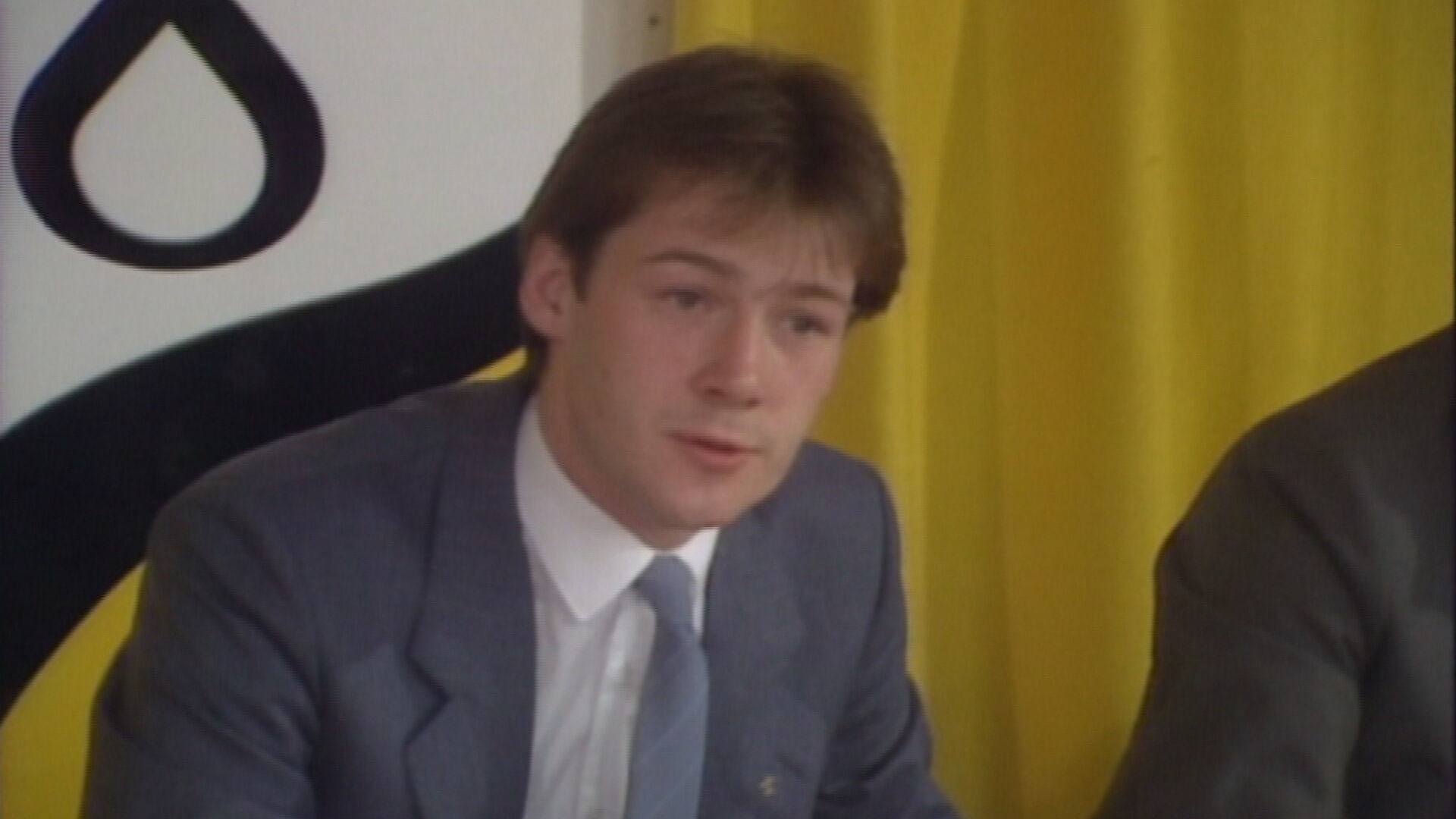 STV News
STV News“I have been touched constantly by the kindness of people in Scotland and their understanding of the many challenges with which we have to wrestle in Government,” he said.
To Sturgeon directly, he wrote: “I am indebted to you for your leadership, constancy, friendship and loyalty.”
The MSP for Perthshire North said he would continue to represent them as he takes his place on the back benches alongside the soon-to-be former First Minister.
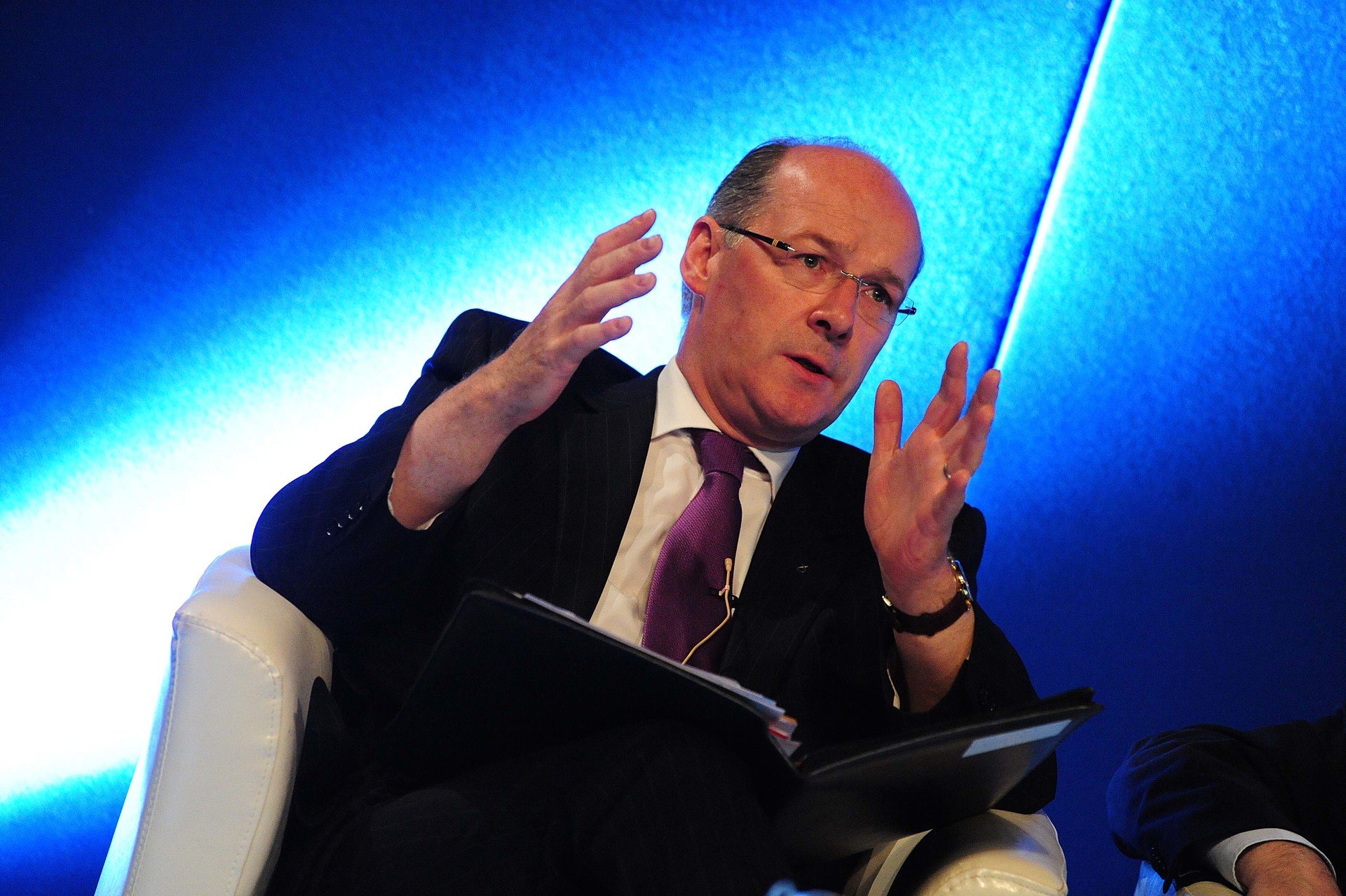 Scottish Government
Scottish GovernmentSwinney was the leader of the SNP from 2000 to 2004 and latterly took on roles as education secretary and finance secretary in the Scottish Government’s SNP Cabinet.
Swinney joined the SNP in 1979, at 15 years old. In 1997, he was elected as MP for North Tayside.
He first became the party’s deputy leader the following year and then when the Scottish Parliament was founded in 1999, he was elected as an MSP.
He became leader of the opposition in 2000.
On February 15, Sturgeon announced she would resign as First Minister of Scotland after eight years in the role.
The SNP will choose a new leader on March 27 with three candidates vying for the position.

Insight Bernard Ponsonby
This should come as absolutely no surprise and has been expected within the Holyrood village even before Nicola Sturgeon’s dramatic announcement that she was quitting as First Minister.
A former leader, he has always been regarded as a ‘safe pair of hands’ and has been entrusted with key ministerial jobs where he has brought a cautious, methodical, if non-dynamic, approach to the business of governing.
His activity within the SNP predates that of Sturgeon and he no doubt feels that he has done his shift.
A student activist, he was the party’s national secretary at a young age and was a key figure in all the debates that preceded devolution.
Since devolution, he has been a trusted lieutenant and a source of dispassionate counsel for leaders who were also cognisant that he was widely trusted and respected figure within the broader party membership.
In the aftermath of his shock resignation in 1976, former Labour prime minister Harold Wilson said: “It’s better that people are asking why you are going than why you are staying.”
Swinney will be acutely aware that he has been a player for over 40 years, and a senior consiglieri for over half that time.
The job he coveted most was that of finance secretary and he got it.
Having realised his ambitions and predated all the current leadership contenders by some distance, he clearly felt that it was time to go rather than face the question, why are you staying?
Follow STV News on WhatsApp
Scan the QR code on your mobile device for all the latest news from around the country


